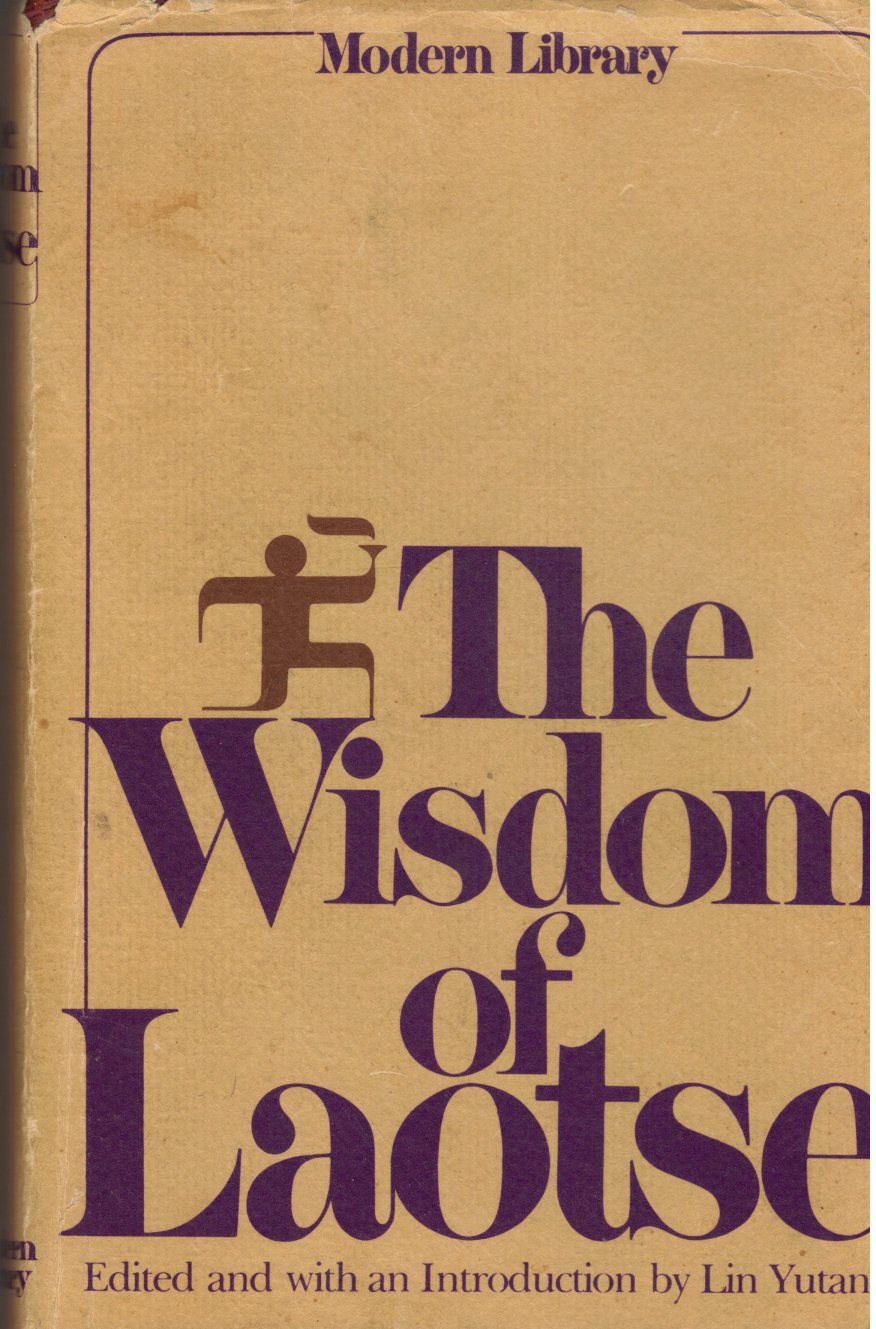
The Wisdom of Laotse

This a book in the old Modern Library series. It starts off with how to pronounce some of the Chinese names, then moves on to an introduction, the prolegomena by Chuangtse, the Tao Te Ching itself, an imaginary conversation between Laotse and Confucius, and a conversion table of chapters in Chuangtse.
I will only comment on the Tao Te Ching itself. The rest of the works are interesting. Each verse, by the way, is followed by related material from Chuangtse.
Verse 1
The Tao that can be told of
Is not the Absolute Tao.
The Names that can be given
Are not Absolute names.
The Nameless is the origin of Heaven and Earth;
The Named is the mother of all things.
Therefore;
Oftentimes, one strips oneself of passion
In order to see the Secret of Life.
Oftentimes, one regards life with passion,
In order to see its manifest form.
These two (the Secret and its manifestation)
Are (in their nature) the same;
They are given different names
When they become manifest.
They may both be called the Cosmic Mystery.
Reaching from the Mystery into the Deeper Mystery
Is the Gate to the secret of all life.
(This differs somewhat from the average translation of verse 1. Note that the verse also includes sections in ( ). This is rather uncommon. The verse is followed by around four pages of related material from Chuang-tse.)
Verse 23
Nature says few words;
Hence it is that a squall lasts not a whole morning.
A rainstorm continues not a whole day.
Where do they come from?
From Nature.
Even Nature does not last long (in its utterances)
How much less should human beings?
Therefore it is that:
He who follows the Tao is identified with the Tao.
He who follows Character (Teh) is identified with Character.
He who abandons (Tao) is identified with abandonment (of Tao).
He who is identified with Tao-
Tao is also glad to welcome him.
He who is identified with Character-
Character is also glad to welcome him.
He who is identified with abandonment-
Abandonment is also glad to welcome him.
He who has not enough faith
Will not be able to command faith from others.
(This version differs somewhat from the average version. Abandonment is usually replaced by the word loss. Actually, I've found a number of different approaches to this particular verse. The book only has one paragraph of commentary on this verse.)
Verse 46
When the world lives in accord with Tao,
Racing horses are turned back to haul refuse carts.
When the world lives not in accord with Tao,
Cavalry abounds in the countryside.
There is no greater curse than the lack of contentment.
No greater sin than the desire for possession.
Therefore he who is contented with contentment shall always be content.
(The major of the translations that I have seen do not use the term race horses, nor do they use the word cavalry, but the meaning of the entire first section is the same in all the books. During peace, horses are used to haul things and fertilize fields, while during war they are kept ready nearby.)
Back to start of Spirituality section
Back to start of Taoism section
Back to main Index page
|